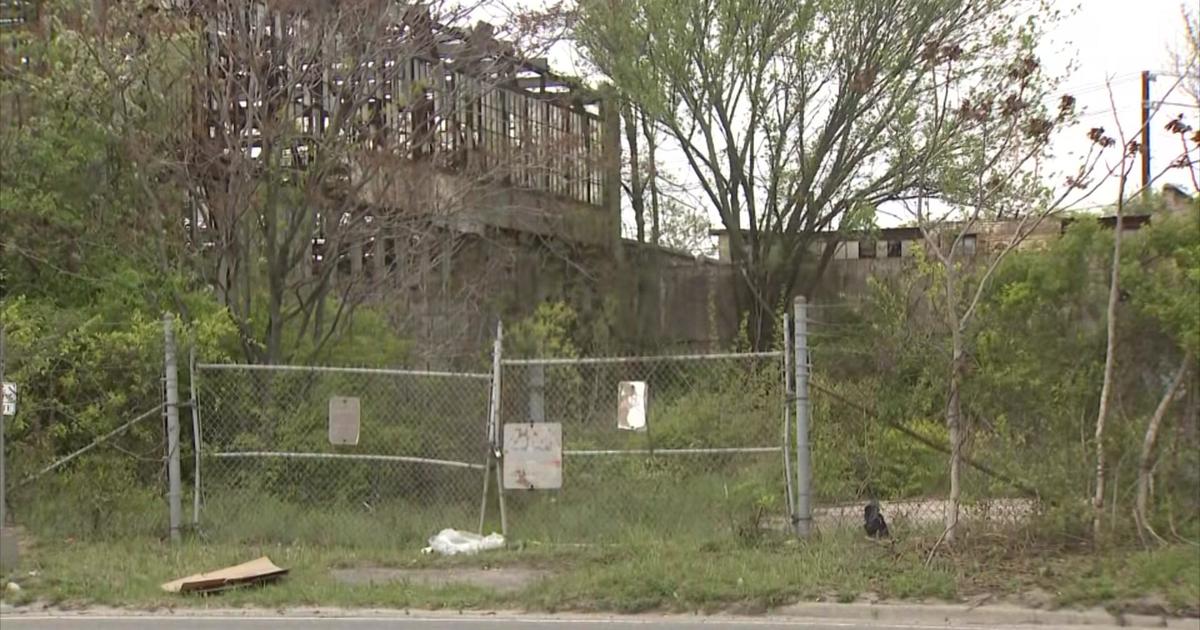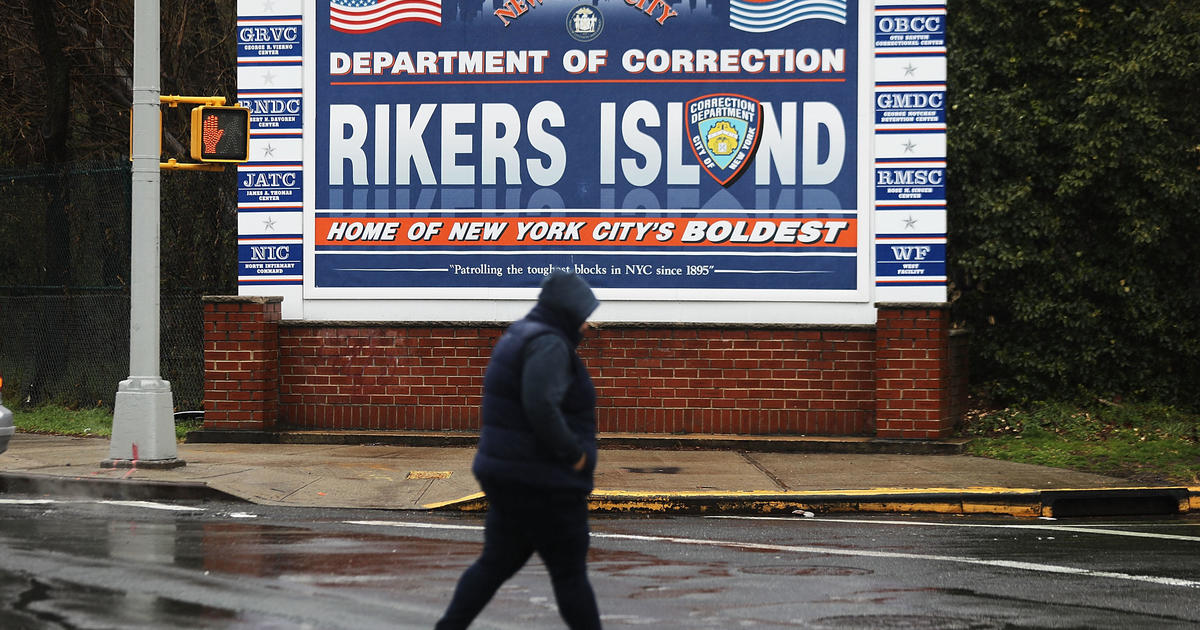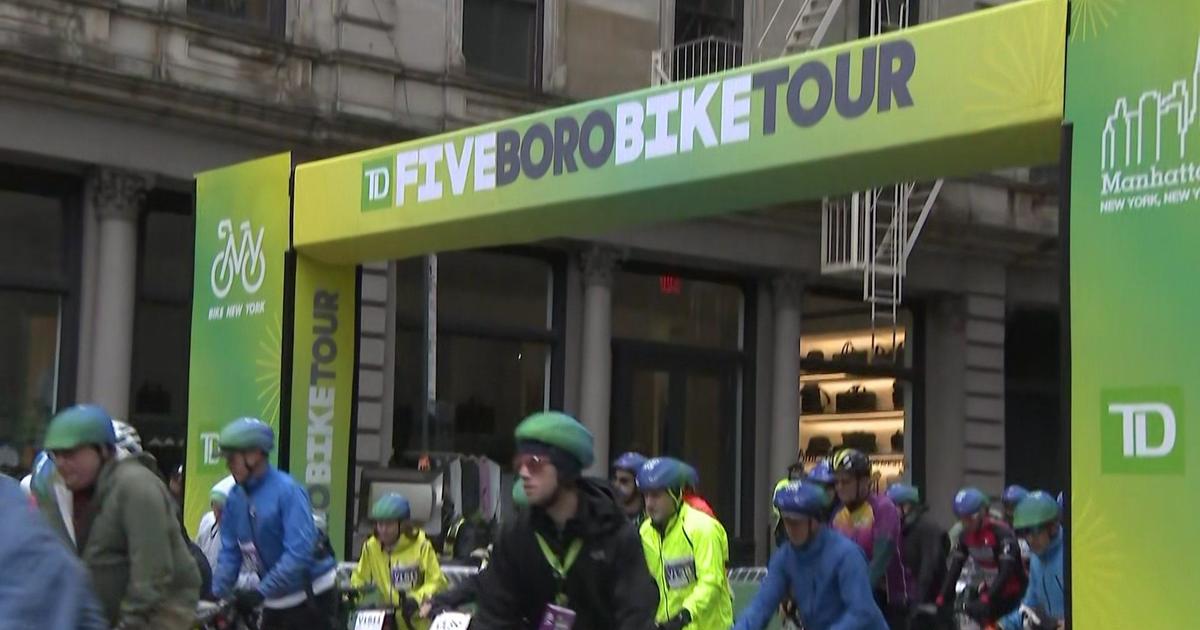Turnpike Authority: Toll Collection Errors Amount To Thousands In Lost Revenue
TRENTON, N.J. (AP/CBSNewYork) -- The New Jersey Turnpike Authority lost at least $358,472 in toll revenue in 2010 and $439,122 in 2009 as a result of toll collectors' cash drawers coming up short. Those figures reflect the net loss, including the instances when motorists are overcharged.
The losses amount to 0.04 percent of the $952.2 million in toll revenue the agency took in last year between the turnpike and Garden State Parkway combined, and are mostly the result of human error, according to the Turnpike Authority.
But, according to officials, there are rare instances of employee theft as well.
"That certainly has happened," said Thomas Feeney, spokesman for the agency, which employs 663 toll collectors on the turnpike and 176 on the parkway. That includes full- and part-time workers.
However, he said, mistakes happen on a toll road as much as they would in any business in which cash is handled.
"Anywhere where there are significant cash transactions, there is going to be overages and shortages," said Feeney. "Mistakes happen and we do our best to keep it to a minimum."
In 2010, 18 incidences involved shortages of more than $250 -- 14 on the turnpike and four on the parkway -- according to the Turnpike Authority, which does not track the reasons for the shortages.
Peter Samuel, editor of the Maryland-based TollRoadsNews.com website, said shortages are not unusual.
"It is not something that toll authorities like to talk about," he said. "It's embarrassing because it reflects some thievery or it reflects a bad cash register system that's not accurate. Sometimes it's some honest mistakes by toll collectors. They're short if they hit too high of a classification and then charge too little money."
Feeney said most of the $952.2 million taken in by the agency in 2010 was collected through the electronic E-ZPass system, but an estimated $260 million was collected during cash transactions.
Feeney said toll collectors on the turnpike, which had the higher losses, are responsible for identifying the class of the vehicle that comes through their lane and charging the motorist accordingly. Class 1 vehicles include passenger cars, motorcycles and light trucks; a passenger car with a trailer attached is a Class 3 vehicle that would pay a higher toll.
Feeney said there is also a system that uses treadles and lasers to detect the class of vehicle automatically.
"If the toll charged the driver didn't match" the classification, that would be caught, he said.
Feeney also said shortages are lower on the parkway mostly because toll revenue collected on that road is less than half of what is collected on the turnpike. "Parkway toll collectors handle a lot less money, so there are fewer opportunities for mistakes," he said.
Employees found to have shortages go through retraining and counseling, said Feeney, adding that outright theft is prosecuted.
The authority is now accepting proposals from private vendors to possibly take over toll collection starting July 1. If it does switch to a private vendor, which would provide its own toll collectors, one of the conditions is that toll collector deposits would be subject to auditing, and shortages would have to be made up by the vendor.
The contractor would have to make restitution regardless of whether the toll collector failed to collect the proper toll, failed to apply the proper toll rate or failed to give the proper change, according to the agency's request for proposals from the companies.
Currently, 75 percent of the transactions on the turnpike and 71 percent on the parkway are electronic, said Feeney. That's expected to grow in the next decade as manual collection phases out -- a national trend.
Franceline Ehret, president of International Federation of Professional and Technical Engineers, which represents toll collectors, said shortages are often the result of motorists running toll lanes without paying the proper amount. "People don't always hand you the right change," she said. "They bang (the money in your hand) and they go. They're in a hurry. They're gone and there's no way to stop them."
Feeney said figures on toll collector shortages do not include violations by motorists.
"When people run the booth without paying, or when they stop but don't have sufficient funds to pay, toll collectors make note of that on the computer screens in their booths, and the amount is deducted from any shortages they might have had," he said.
In other cases, Ehret said, the toll collector -- especially a probationary worker -- may make a mistake.
"It's different from when you're at McDonald's or working at Wendy's, where people are sitting there waiting for their money," she said. "It's like an assembly line."
Ehret said there have been cases of employee theft. She said the turnpike has had state police come to talk to workers in the past "to impress upon people ... what's going to happen to them if they screw up," she said.
"The turnpike is very good about catching those people, and people do get arrested and they do get charged," she said. "The system is so good right now ... you really have to be an idiot" to steal toll money, she said.
SOUND-OFF: Who or what do you think is to blame for the lost revenue? Employee theft? Human error? Let us know in the comments sections below...
(TM and Copyright 2011 CBS Radio Inc. and its relevant subsidiaries. CBS RADIO and EYE Logo TM and Copyright 2011 CBS Broadcasting Inc. Used under license. All Rights Reserved. This material may not be published, broadcast, rewritten, or redistributed. The Associated Press contributed to this report.)



